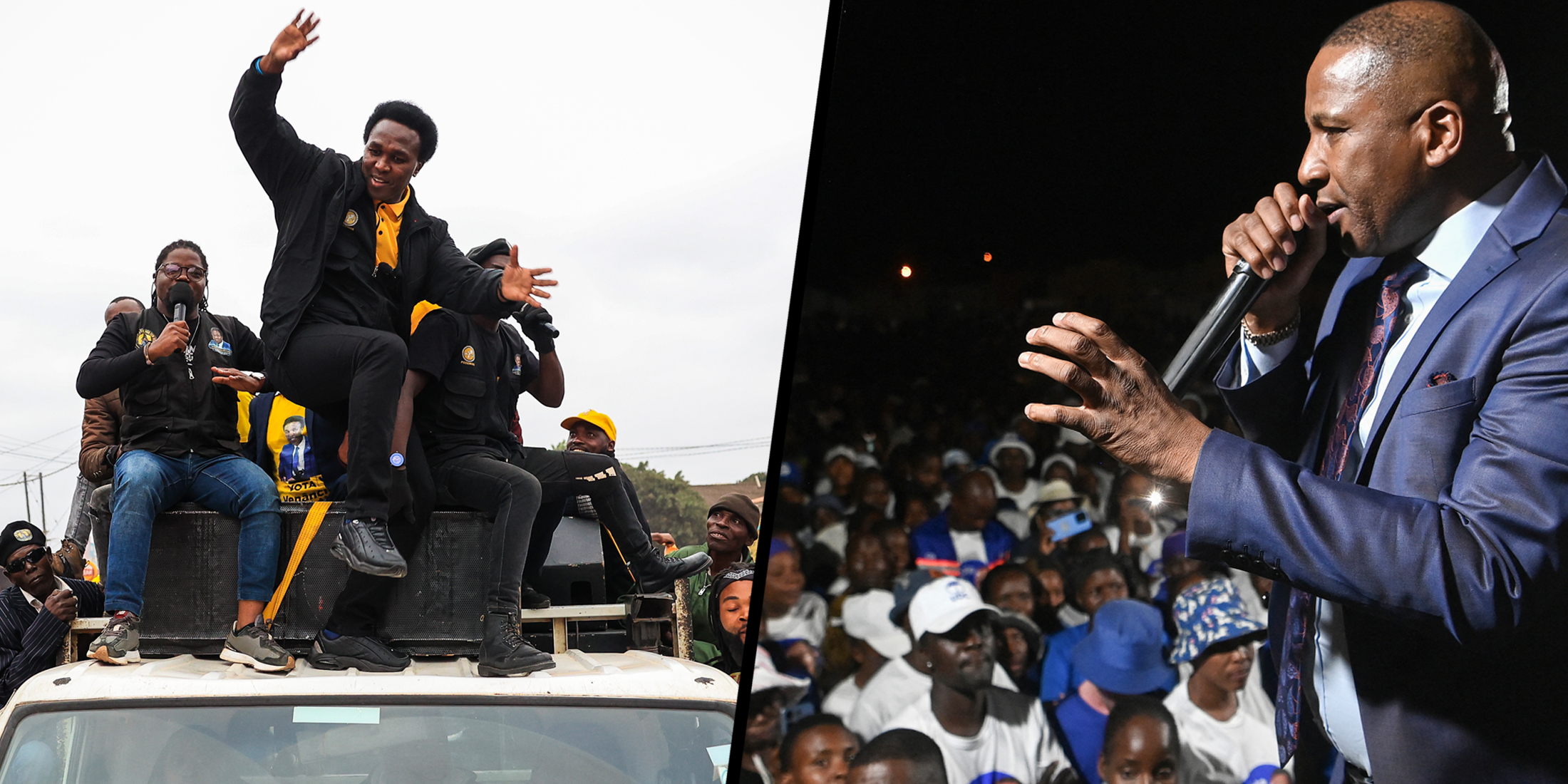To wit, the elections in Botswana and Mozambique both bore the spells cast by what development economists dub the “resource curse”, and the aftermath of this hocus-pocus has unfolded in starkly different ways.
Botswana has had a peaceful transfer of power after the Botswana Democratic Party (BDP) lost last month’s poll, ending its almost six decades at the helm. Duma Boko, a Harvard-educated human rights lawyer and leader of the Umbrella for Democratic Change, was sworn in as president last Friday.
Mozambique also had an election last month and the ruling Frelimo Party - in power since independence from Portugal in 1975 - claims it won a landslide victory, handing the presidency to the obscure Daniel Chapo. He replaced Filipe Nyusi, who served two terms.
The opposition, led by Venâncio Mondlane, cried foul, and probably with good reason: Mozambique is one of the world’s poorest countries and is reeling from the effects of last summer’s scorching El Niño weather event, which decimated crop yields and has left more than 3 million Mozambicans in need of food aid.
Frelimo claimed that Chapo received over 70% of the vote, which seems unlikely given Frelimo’s decades-long track record of corruption, incompetence and failure to meaningfully develop the economy. A former DJ, Mondlane has a huge following among Mozambique’s disenchanted youth, and they have been protesting.
Frelimo has responded with an iron fist and human rights groups report that at least 18 people have been killed in the violence triggered by the protests. Internet access has also been throttled as part of the crackdown on dissent.
Read more: Mozambique’s dark hour: repression, digital isolation and the struggle for freedom
Reuters reported that fresh violence erupted around Maputo on Thursday morning as Mozambican police fired teargas at hundreds of opposition supporters gathering for a mass Day of Freedom demonstration. The unrest has prompted the temporary closure of the Lebombo border crossing.
Read more: SA miners face setback as Mozambique election violence shuts Lebombo border
Diamonds and gas
This stark political contrast between the two countries can be viewed in a couple of different lights.
For starters, the BDP was never a “liberation movement”, while Frelimo was very much cast in that mould, with support from the Soviet Union and China for its armed struggle against the Portuguese.
Liberation movements in this region don’t relinquish power easily as they draw on an often mythical past to control the future.
The resource curse also played a role in both elections and their contrasting aftermaths. The “curse” broadly refers to the failure of resource wealth - especially in Africa - to translate into wider prosperity, and the dangers inherent in an economy becoming addicted to a single commodity.
Botswana has long seemed the exception on this front, using its vast wealth from diamond production to provide free healthcare and education for its citizens while obtaining a coveted investment grade credit rating.
But alas, Botswana’s diamond boom has turned to bust as lab-grown gems have flooded the market, sending demand for mined stones into a nosedive.
Botswana’s economic growth slowed sharply to 2.7% in 2023 from 5.5% in 2022 and is projected to brake to 1% this year. South Africa’s growth rate could be higher than Botswana’s in 2024, and you know your economy is growing at a snail’s pace when that happens. And the unemployment rate in Botswana is now 28% and rising.
In Mozambique’s case, it is an expected resource bonanza on the horizon which is conjuring the curse.
Hydrocarbon majors such as ExxonMobil have massive liquified natural gas projects in the pipeline in Mozambique which are expected to attract tens of billions of dollars in investment in the coming years.
Frelimo is already high on these fumes and has no intention of passing the jerry-can to another political party. It’s going to keep its snout in the nozzle and keep on inhaling.
Hydrocarbons have long had this corrosive effect on body politics in Africa. Just witness Angola, Nigeria, Gabon and Equatorial Guinea.
The stakes in the political game simply become sky-high when the elite in an impoverished country can gain control over access to resources such as oil and gas.
Frelimo has no doubt long looked with envy at Angola’s MPLA and the billions of petrol dollars it stole and syphoned over the decades. Same colonial overlords but different geology.
Now it’s Frelimo’s turn to eat at the hydrocarbon buffet. DM





